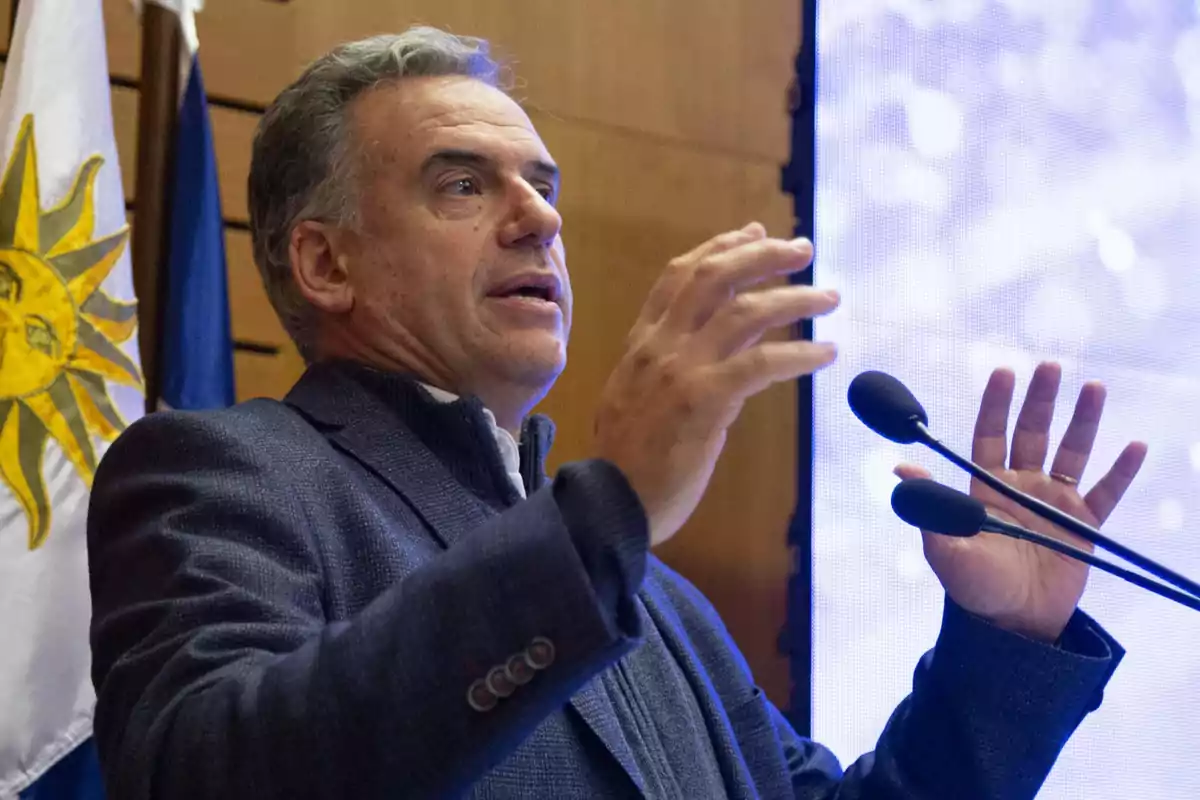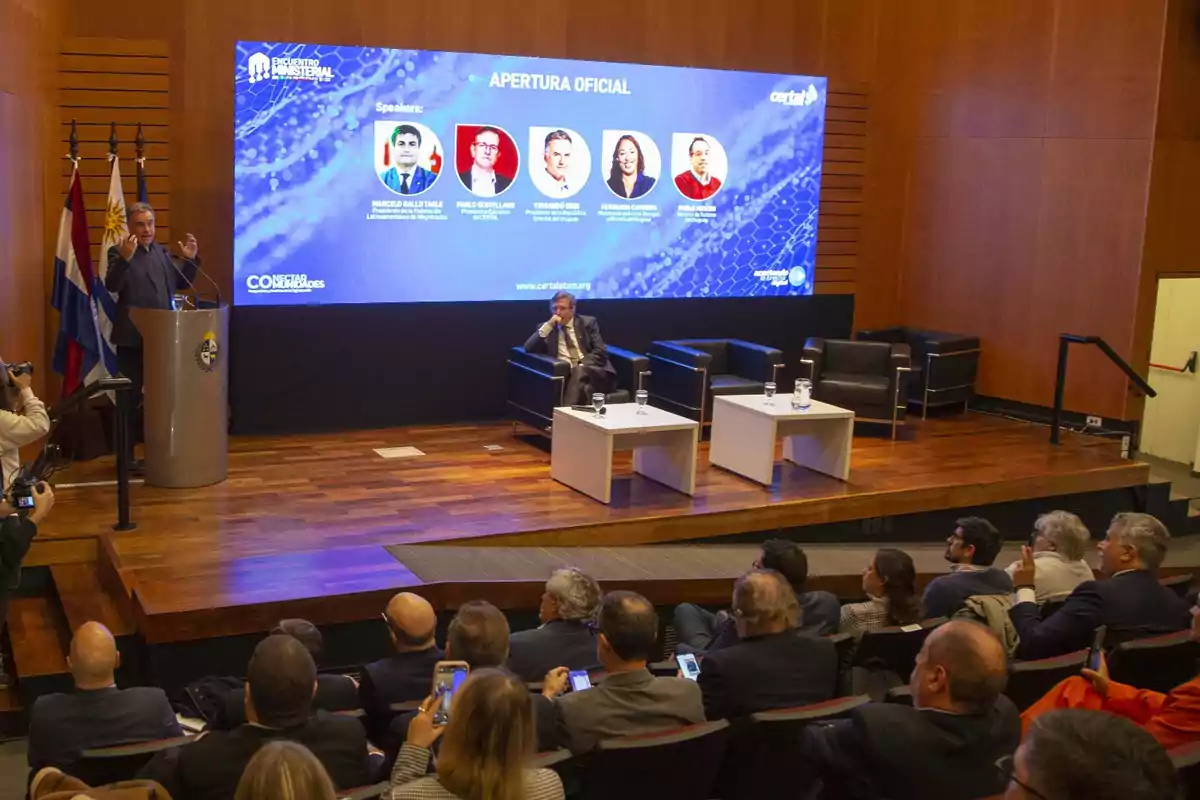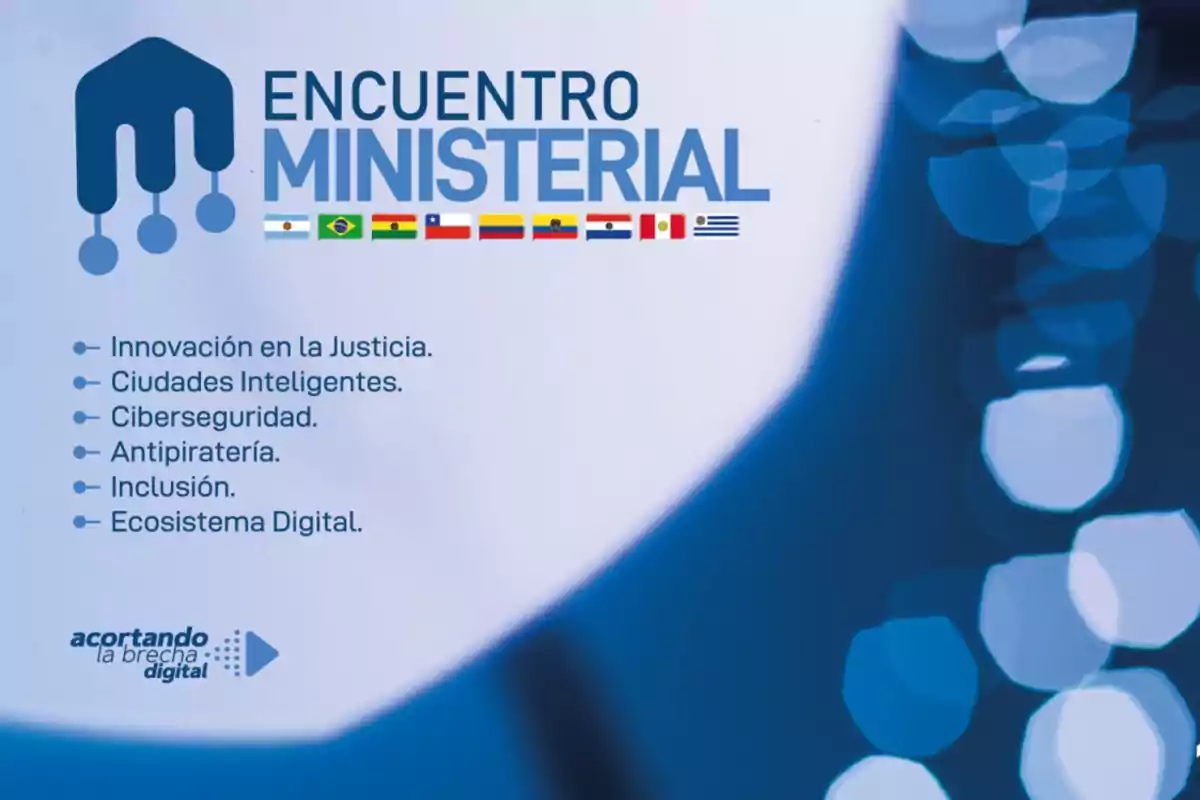
Justice and Telecommunications: the State moves toward control of digital discourse
The threat of state control
The "Justice and Telecommunications" Ministers' Meeting, held at the Executive Tower on July 15 and 16, 2025, organized by the Latin American Center for Regulatory and Telecommunications Studies (CERTAL), highlighted the Frente Amplio's interventionist agenda in the digital space.
With the participation of Yamandú Orsi and Minister Fernanda Cardona, the event served as a platform to promote regulations that, under the pretext of "technological justice" and the protection of "human rights", fiercely threaten freedom of expression and free competition.
You may also be interested in...
These policies, already set out in Frente Amplio's "2025-2030 Programmatic Bases," are leading Uruguay toward state control similar to what prevails in the dictatorships of Cuba and Venezuela, where public discourse is restricted in the name of "security" and "equity."
A Forum for State Regulation
CERTAL claims to defend freedom of expression, independent media, and journalists' rights.
However, this regional and global think tank, pro-Agenda 2030, came to catapult Frente Amplio so it can implement state intervention policies in telecommunications and the digital world as set out in its government program.

At the event, Orsi stated: "Governments must provide a legal framework in the face of advances in information technologies," ushering in a new level of restriction on the freedoms of Uruguayan citizens.
You may also be interested in...
This international forum legitimizes policies to control thought, through regulation of the digital ecosystem and censorship of those who do not align with the progressive narrative.
Censorship Disguised as Inclusion
Frente Amplio's "Programmatic Bases" reveal an agenda that goes beyond technological infrastructure. Among all the delusions they propose, they criticize the "concentration of communication technologies" in the hands of private conglomerates, arguing that "they guide public opinion like never before" and threaten democracy.
In response, the left's solution will be to guarantee sovereignty by the State regarding telecommunications policy with Antel's leadership.
Under the pretext of combating "disinformation" and promoting an "inclusive digital culture," Frente Amplio proposes regulations that will grant the State the power to define which content is acceptable.
Friedrich Hayek already warned: "Freedom of expression is the foundation of all freedom, and its restriction by the State is the first step toward tyranny".
Cuban Style
Frente Amplio's proposal to strengthen ANTEL and regulate the telecommunications spectrum reflects a model of state control as seen in Cuban and Venezuelan dictatorships.

In Cuba, ETECSA, the state telecommunications company, monopolizes telephone and internet services, restricting access to information and blocking sites critical of the regime. The same occurs in Venezuela: social networks are blocked during protests to silence the opposition.
You may also be interested in...
Defending Freedom Against the Digital Thought Police
In 1984, George Orwell warned of a future in which the "Thought Police" would monitor and control every word, every idea, to ensure submission to the regime. In Uruguay in 2025, Frente Amplio's policies threaten to take us to an eerily similar scenario.
The proposal to strengthen state control over telecommunications, with ANTEL as the central axis and the "egalitarian" management of the radio spectrum, not only stifles free competition, but also gives the government the power to decide which voices will resonate in the digital space.
Under the pretext of combating "disinformation" and guaranteeing "digital sovereignty," Frente Amplio, backed by the CERTAL Meeting, will move toward regulation that will pave the way for the digital Thought Police, silencing opinions that dissent from the official narrative.
Uruguayans must resist this advance toward state control of public discourse. Freedom of expression and free competition are the pillars of a free society, to surrender them under the guise of "technological justice" is to establish the dictatorship of thought.
As in 1984, where state surveillance crushed any hint of dissent, the regulations proposed by Frente Amplio will transform digital media into controlled spaces, where only ideas approved by the government will thrive. If Uruguay doesn't defend freedom, it is heading toward a future where the digital Thought Police will dictate what we can say, think, and create.
More posts: